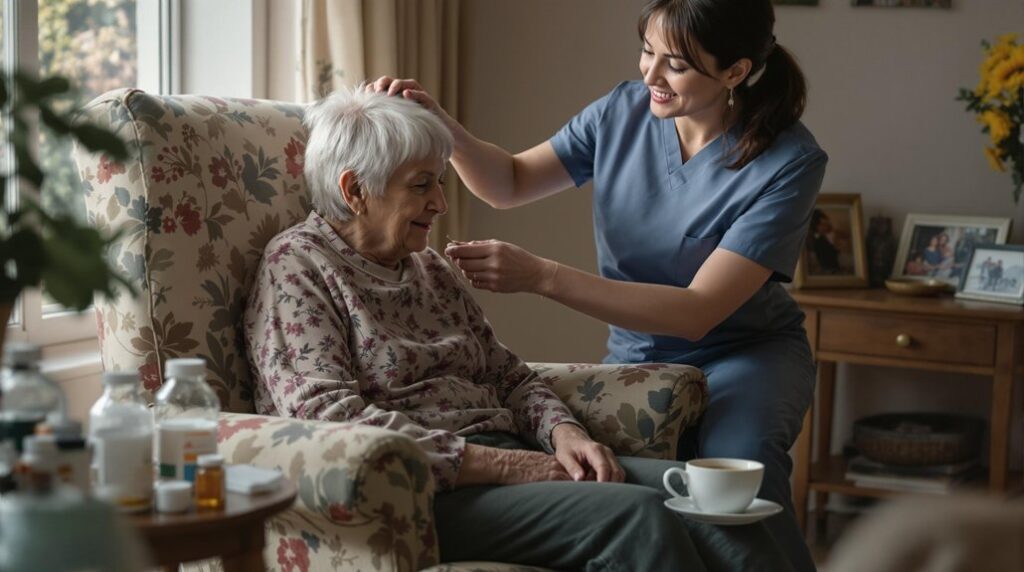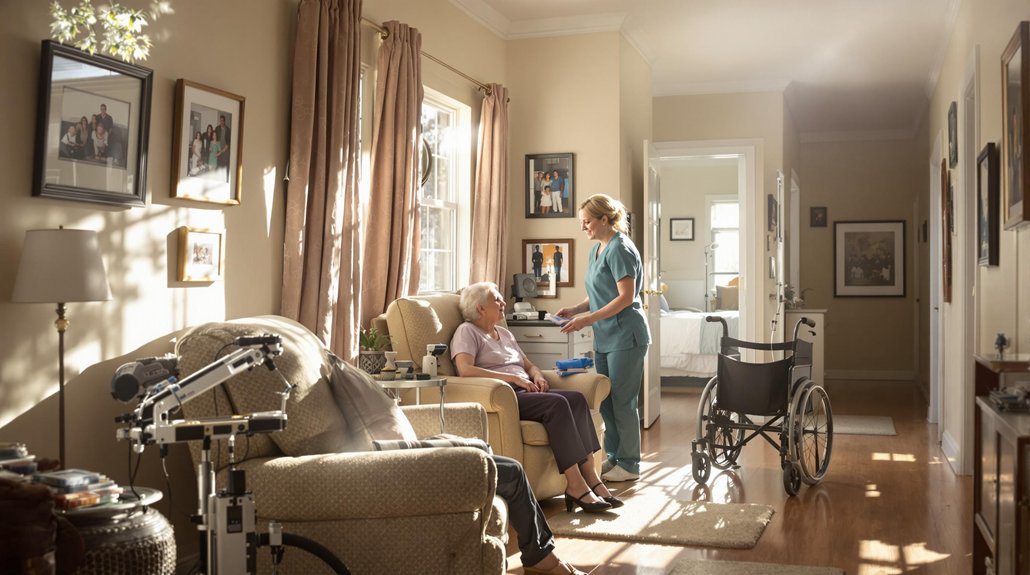Personal home care helps you maintain independence while receiving essential support in your own home. You’ll get assistance with daily activities like bathing, dressing, and meal preparation from trained caregivers who focus on your unique needs. The service includes medication reminders, light housekeeping, and companionship to enhance your quality of life. Understanding more about personal home care can help you make informed decisions about your healthcare journey.
Understanding the Core Components of Personal Home Care
While many people associate personal home care with basic assistance, it encompasses several crucial components that work together to support independent living.
Personal home care delivers more than basic help – it’s a comprehensive system designed to preserve independence and dignity at home.
You’ll find that quality home care involves a thorough approach to meeting physical, emotional, and social needs.
The core elements include hands-on personal support with daily activities like bathing, dressing, and grooming.
Beyond these basics, you’re also providing medication reminders, meal preparation, and light housekeeping to maintain a safe environment.
Your role extends to offering companionship and emotional support, helping clients stay connected to their community.
Transportation assistance and advocacy during medical appointments are equally important components.
You’re not just delivering care; you’re creating a supportive framework that enables individuals to maintain their dignity while living comfortably at home.
Post-operative care services ensure proper recovery and prevent complications after surgery through professional wound care and mobility support.
Key Benefits of Receiving Care in Your Own Home
Three significant advantages stand out when receiving care in your own home environment. You’ll maintain your independence while receiving personalized support that adapts to your unique needs. Your emotional well-being benefits from staying in familiar surroundings, surrounded by cherished memories and personal belongings. Long-term care insurance and various payment options make personal home care accessible for many families seeking quality care solutions. Your home setting enables caregivers to focus exclusively on your needs, fostering stronger relationships and more effective care. This personalized approach helps you maintain dignity while receiving essential assistance, making personal home care an empowering choice for many individuals.
| Benefit Category | Impact | Outcome |
|---|---|---|
| Comfort | Familiar Environment | Reduced Stress |
| Independence | Customized Care Plan | Greater Control |
| Safety | One-on-One Attention | Fewer Accidents |
| Emotional Support | Family Closeness | Better Mental Health |
| Cost-Effectiveness | Flexible Scheduling | Resource Optimization |
Types of Services Included in Personal Home Care
Personal home care encompasses an extensive range of services tailored to meet your daily living requirements.
You’ll find assistance with essential tasks like bathing, dressing, grooming, and medication management. Personal assistance also includes help with mobility, transfers, and fall prevention to guarantee your safety at home.
Beyond physical care, you’ll receive support with household duties such as meal preparation, light housekeeping, laundry, and grocery shopping.
Companionship services play a crucial role too, offering emotional support through engaging conversations, shared activities, and accompaniment to medical appointments or social events.
Additional services may include transportation assistance, exercise support, and coordination with healthcare providers to maintain your overall well-being.
Your care plan can be customized to address your specific needs and preferences.
Skilled nursing services are also available for those requiring more advanced medical care at home.
How to Choose the Right Personal Home Care Provider
When selecting a home care provider, you’ll need to evaluate several important factors to ascertain the best match for your needs. Start by researching potential agencies and their provider qualifications to guarantee they meet your standards for quality care.
- Verify the agency’s licensing, insurance coverage, and background check procedures for their caregivers.
- Review their service customization options to confirm they can accommodate your specific requirements and schedule.
- Ask about their caregiver training programs and ongoing professional development practices.
- Request references from current clients and check online reviews to gauge satisfaction levels.
Remember to trust your instincts during initial consultations. The right provider should demonstrate genuine care, clear communication, and a willingness to adjust their services as your needs change over time. Look for providers who offer comprehensive care assessments to develop personalized plans that address your unique health requirements and preferences.
The Role of Caregivers in Personal Home Care Support
Professional caregivers serve as the backbone of personal home care, providing essential daily support to individuals who need assistance. In this role, they’ll help with activities of daily living, monitor health conditions, and guarantee their clients maintain dignity and independence.
Caregiver responsibilities include personal hygiene assistance, meal preparation, medication reminders, and companionship. You’ll find that these professionals also coordinate with healthcare providers, maintain records, and respond to emergencies when needed.
Quality caregiver training is vital for delivering effective care. Caregivers receive instruction in proper lifting techniques, infection control, emergency procedures, and communication skills.
They’re also trained to recognize changes in their client’s physical or mental condition, guaranteeing timely medical intervention when necessary. This thorough preparation enables them to provide safe, compassionate, and professional care. Through ongoing quality assessments, caregivers maintain high standards of care while promoting optimal outcomes for their clients.
Conclusion
Personal home care is becoming a vital part of healthcare as more Americans grow older. Every day, thousands of seniors need extra help to live comfortably and safely at home. Think of personal home care as a helping hand that lets you or your loved ones stay in the familiar comfort of your own home, surrounded by cherished memories and personal belongings. Whether it’s help with daily tasks, recovery after an illness, or ongoing support, you don’t have to face these challenges alone.
Just like a trusted neighbor or family member, our caregivers bring warmth, understanding, and professional support right to your doorstep. We believe everyone deserves to age with dignity while maintaining their independence in the place they love most – home.
If you or a loved one need help, don’t wait. Reach out to Focus Family Care today at (561) 693-1311 or email us at info@focusfamilycare.com.




